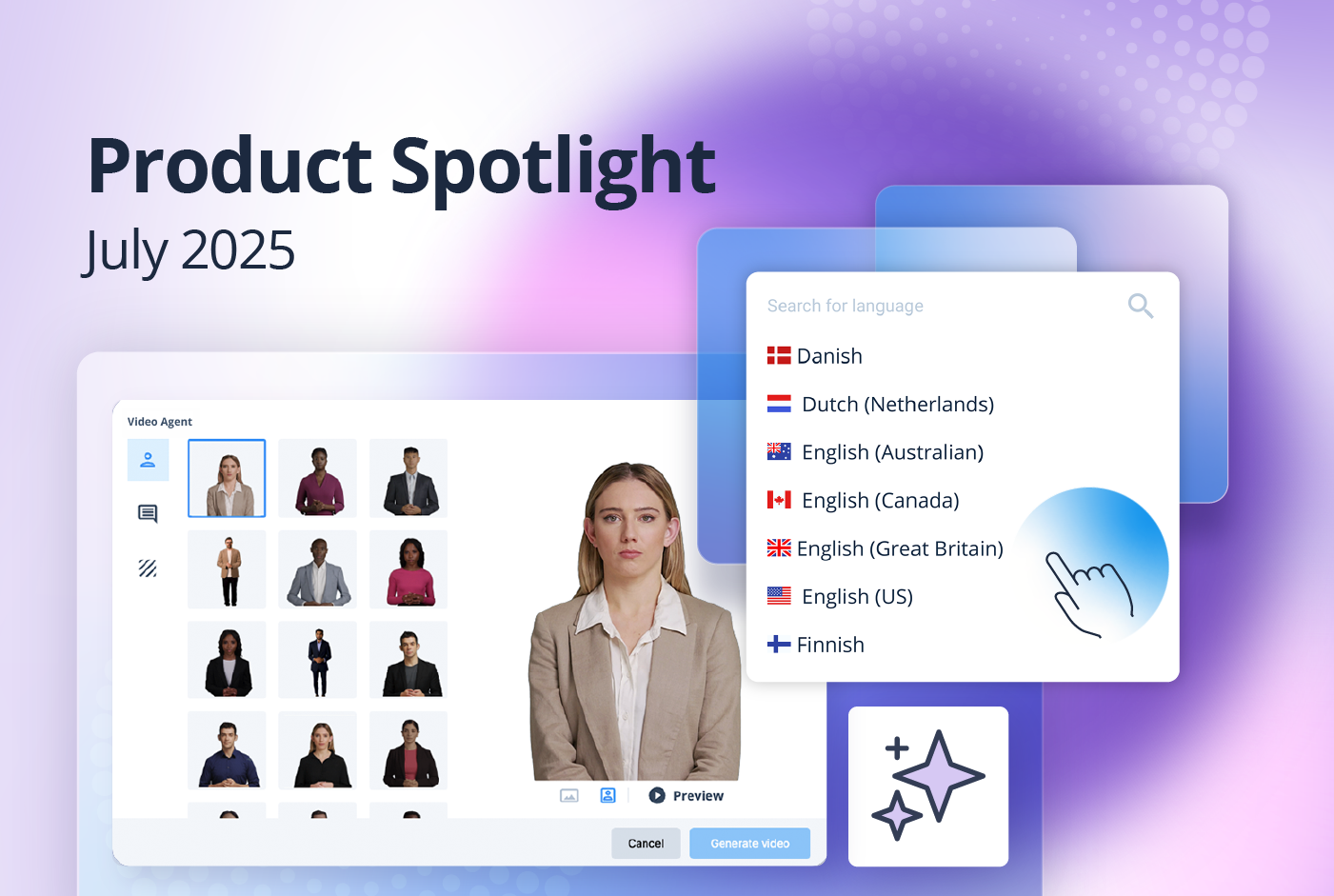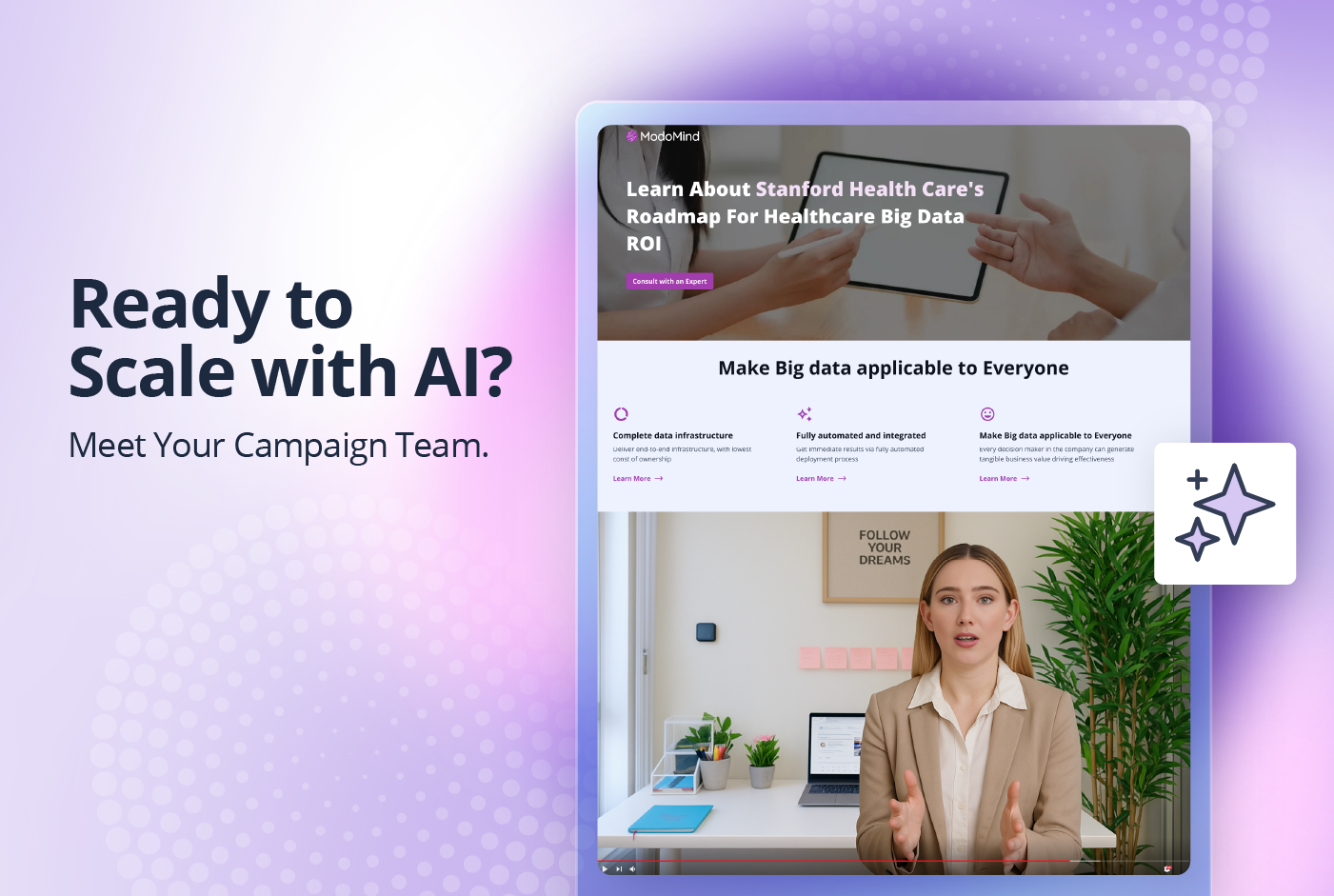COVID-19 is lighting a collective fire under the butts of every B2B marketer. And that’s a good thing.

There’s a new business world unfolding, driven by unprecedented global events that are changing the way companies operate, market, and sell. In a digital-only environment defined by the fallout of COVID-19, B2B marketers now face profound challenges as they navigate an unpredictable marketplace.
Proven best practices like account-based marketing (ABM) are already commonplace for B2B marketers. That said, our new reality (and new normal) is forcing everyone to rethink how they can optimize their strategy with a more personalized, one-to-many engagement model. As marketers today cautiously move forward, they will increasingly rely on better customer data, hyper-targeting, personalization, and sales collaboration – and they’ll endeavor to expand their job function beyond the traditional top-of-the-funnel focus.
As B2B marketers wait for the COVID-19 dust to settle, they should take advantage of the downtime to assess and rethink their approach to ABM and personalization. Once we exit from this crisis, business as usual will be anything but usual.
Rethink your segmentation strategies (and with some empathy)
COVID-19 has impacted every company. As you define and refine your segmentation strategies, consider the unique challenges facing each industry. How can you help customers during this period of uncertainty? In many cases, prospects are not in a buy-cycle and are researching alternative solutions to support the new realities facing their businesses.
With this understanding and some empathy, B2B marketers can better deliver the right solution and engagement strategy.
Rethink how you deliver personalized customer experiences at scale
The complexity of personalizing interactions at scale leads most ABM deployments to focus on a limited set of accounts. A recent survey from Propeller Insights and sponsored by Folloze found that while more than three-fourths (77%) of sales and marketing professionals believe personalization in marketing makes for better customer relationships, nearly half (42%) conceded that their marketing effort is not fully personalized.
Engaging B2B buyers in a COVID-19 and digital-only marketplace is now forcing every marketer to rethink their approach to ABM and personalization, including data-driven skillsets and technologies. Leveraging a “tone deaf” one-size-fits-all approach to ABM and personalization does not work in a COVID-19 world. Now, more than ever, you need to demonstrate empathy and engage prospects with the right content and message
Thankfully, marketers have all of the tools at their fingertips to deliver powerful and engaging experiences at an infinite scale. With intent other first-party data, marketing organizations can quickly understand which accounts are in a buy-cycle or which topics are top of mind.
At the same time, machine learning technology allows teams to harness this data to create and deploy hyper-personalized digital experiences at scale across target accounts. Personalized content experiences for a COVID-19 marketplace may include targeted case studies, videos, webinars, blog posts, and your assigned sales rep contact information. Finally, personalized content also contributes to the virality of your campaigns within your accounts to expand coverage and conversion results.
Rethink your tech stack
The economic fallout from the COVID-19 pandemic will undoubtedly winnow and reduce the number of marketing technology vendors that contribute to an already over-bloated tech stack. At the same time, the marketing technology stack will no longer revolve around marketing automation as the center of the universe. Why?
Over a decade ago, many CMOs were in the hot seat for not embracing marketing automation technologies. Today, marketing teams are facing similar pressure to embrace data, analytics, and AI to bolster their ABM, personalization, and customer lifecycle marketing programs.
In a modernized tech stack, AI and machine learning technologies will play a pivotal role. At the same time, traditional marketing automation platforms will deliver diminishing returns. The
Folloze survey identified a linkage between AI and marketing personalization competency. Specifically, fewer than 40% of respondents were using AI to personalize their marketing efforts, and that resulted in poor outcomes. In the same way, more than a fifth (21%) of the survey group said their company does not use data on existing customers to personalize content designed to increase sales to them.
In unprecedented times, rethink everything
We are living in unprecedented times. While the COVID-19 pandemic has left a wake of loss and misfortune, there will be some silver linings. Our new digital-only reality and “new normal” will accelerate digital transformation across every B2B enterprise. More importantly, this momentum will serve as the catalyst to resolve those vexing technology, skills, and organizational challenges that have prevented marketing teams from fully delivering a rich customer experience at scale through their ABM programs.
Over the next few weeks, Folloze will be exploring these topics through a series of webcasts. We invite you to attend and learn how to guide your marketing teams through an uncertain marketplace and position yourselves for long-term success.
April 20, 2020 | 10am - 10:45am PDT
B2B Marketing Will Never Be the Same: How to Prepare for a Post COVID-19 World
Featuring SiriusDecisions-Forrester
To register, click here.
May 11, 2020 | 3pm - 3:45pm EDT
5 Ways To Maximize The Scale & Personalization Of ABM Campaigns In An Uncertain, Digital-Only Marketplace
Featuring the Demand Gen Report.
To register, click here.



